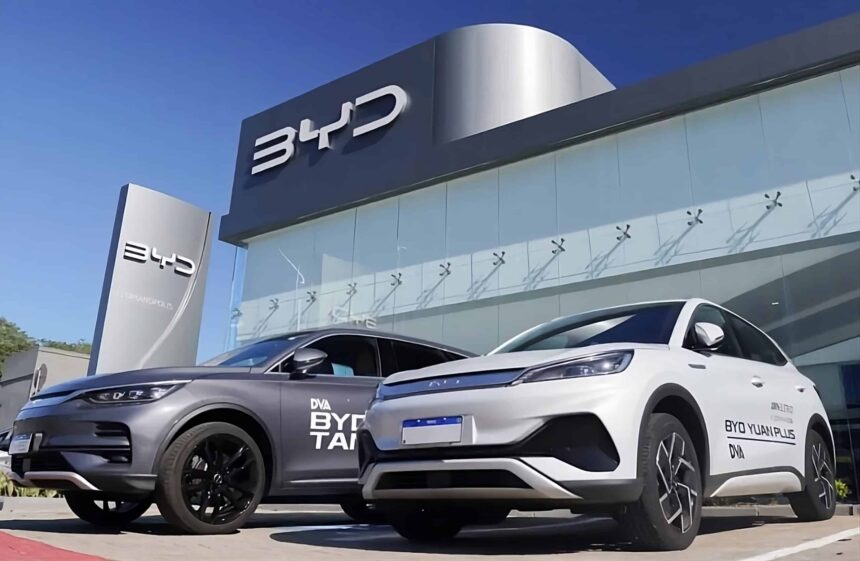In December 2024, a total of 10,091 BYD vehicles had been registered in Brazil, ranking eighth in terms of gross sales, thereby increasing the company’s overall registration count for the year to 76,713 units, a remarkable surge of 327.68% from the 17,937 registrations recorded in 2023.

Brazil has become BYD’s largest overseas market. BYD’s fashion offerings in Brazil include a range of compact cars, sport utility vehicles (SUVs), and pickup trucks. In Latin America, specifically in Brazil, the BYD Dolphin’s particular version has secured its position as the top-selling electric vehicle to date. Building upon this success, BYD introduced the Dolphin Plus and Dolphin Diamond variants in October 2023, with price tags of approximately $34,900 (179,800 BRL) and $29,000 (149,800 BRL), respectively. The BYD Dolphin has recently achieved a remarkable milestone by earning 5-star ratings in both the Latin NCAP’s crash test and safety assessment, solidifying its position as the safest vehicle in Latin America.
With a remarkable pace of growth, BYD has emerged as the Chinese automaker with the fastest increase in funding in Brazil over the past two years. According to Brazilian authorities’ statistics, BYD’s manufacturing facility in Camaçari, Bahia state, has the capacity to produce up to 300,000 vehicles annually. Moreover, BYD has deliberately decided to open 250 shops in Brazil by the end of 2024.
In addition to BYD, the other two significant Chinese automobile manufacturers operating in the Brazilian market are Chery and Great Wall Motor. In a pioneering move, Chery became the first Chinese automaker to establish a presence in Brazil, introducing its Tiggo model for local consumption as far back as 2009. Since its inception, Chery has invested substantially, committing $400 million to the construction of new manufacturing facilities; despite this commitment, the company still predominantly focuses on producing gasoline-powered vehicles. From January to November 2024, China exported a total of 228,235 conventional vehicles and 149,923 new-energy vehicles to Brazil.
Brazilian automotive market
By 2023, Brazil’s automotive sector had reached new heights, with both production and sales surpassing 2.3 million units, solidifying its position as the leading market in South America and the world’s sixth-largest. Brazilian authorities implemented a policy in 2015 to promote sustainable growth in the automotive industry by exempting electric vehicles with a range exceeding 80km from import tariffs, effective 2015. Since 2018, Brazilian authorities have launched the “Rota 2030” plan, aiming to make electric cars account for 30% of Brazil’s overall automotive sales by 2030. To achieve this goal, they offer tax incentives valued at up to 19 billion reals by 2028.
Supply: Yiche











